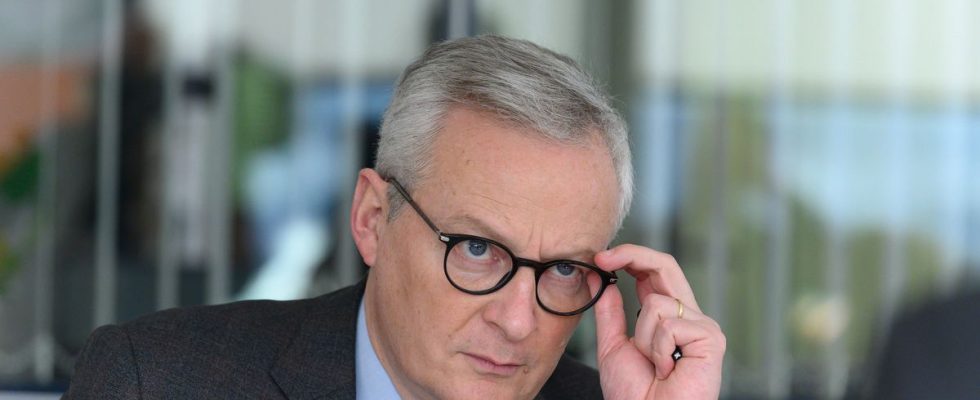More than a month to complete the budget. Bruno Le Maire and his new Minister Delegate for Public Accounts Thomas Cazenave must present the finance bill for 2024 at the end of September. And the Minister of Economy and Finance has decided to return to politics in Haute-Savoie, this THURSDAY.
With growth expected around 1% in 2023, compared to 2.5% in 2022 and 6.4% in 2021, less dynamic tax revenues than in 2022 and a public debt of more than 3,000 billion euros, the closure of the budget promises to be tricky. To the great displeasure of employers, the government could spread out the total abolition of the business value added contribution (CVAE), initially announced for 2024. Halved in 2023, this production tax had brought in more than 9.6 billion euros. euros to the State and local authorities in 2022.
Cut state subsidies to the CNRS or Pôle emploi
The government could also postpone the tax cut of two billion euros for households, outlined in the spring by Emmanuel Macron. Despite the hostility of the executive to tax increases, the removal of tax loopholes unfavorable to the environment is being studied, as is the increase in taxation of motorway companies and plane tickets.
In terms of spending, Bruno Le Maire intends to cut more than a billion euros from state subsidies to its operators such as the CNRS or Pôle emploi. The “Pinel” system, which allows individuals to benefit from tax reductions on the purchase of rental housing, should disappear and the zero-rate loan be refocused, for an estimated saving of two billion euros in the long term. . Other savings measures such as the abolition of reductions in employers’ contributions for salaries between 2.5 and 3.5 Smic, recommended by Renaissance MP Marc Ferracci, or the reform of daily allowances paid by Health Insurance could be included in the Social Security financing bill (PLFSS), which will also be presented at the end of September.
Can the public deficit fall below the 3% of GDP threshold in 2027?
This is the text that materializes the French ambition to bring the public deficit below the European threshold of 3% of GDP in 2027: the public finance programming law (LPFP), challenged by the deputies at the end of 2022, must return to the Parliament. The LPFP details, for each year between 2023 and 2027, the public debt and deficit reduction targets set by Paris. “It is a condition for triggering a certain number of aid from Europe” linked to the post-pandemic recovery plan, explained to AFP the Renaissance deputy and general rapporteur for the budget Jean-René Cazeneuve. A payment of 11 billion euros has already been suspended by Brussels this summer and another of 8 billion will be at the end of the year if the law is not adopted, according to him.
It remains to have this law adopted by a National Assembly where the government can only count on a relative majority. To avoid wasting precious 49.3, the government should convene a short extraordinary session of parliament at the end of September, specifically intended to push through the PSSA, before the regular session begins in October.
The presidential in the line of fire?
The next presidential election is only scheduled for 2027, but Interior Minister Gérald Darmanin has already launched the race to succeed Emmanuel Macron in mid-August. “What worries me now is what will happen in 2027”, launched the Figaro the restless forties, supported by ex-president Nicolas Sarkozy in his Elysian ambitions. While he is regularly given presidential ambitions. Will Bruno Le Maire remain unresponsive to this offensive by a minister who was under his supervision when he was in charge of Public Accounts, from 2017 to 2020? “The presidential election of 2027, I don’t think about it”, still assured the weekly in early August Paris Match the Minister of the Economy, without cutting short speculation.

